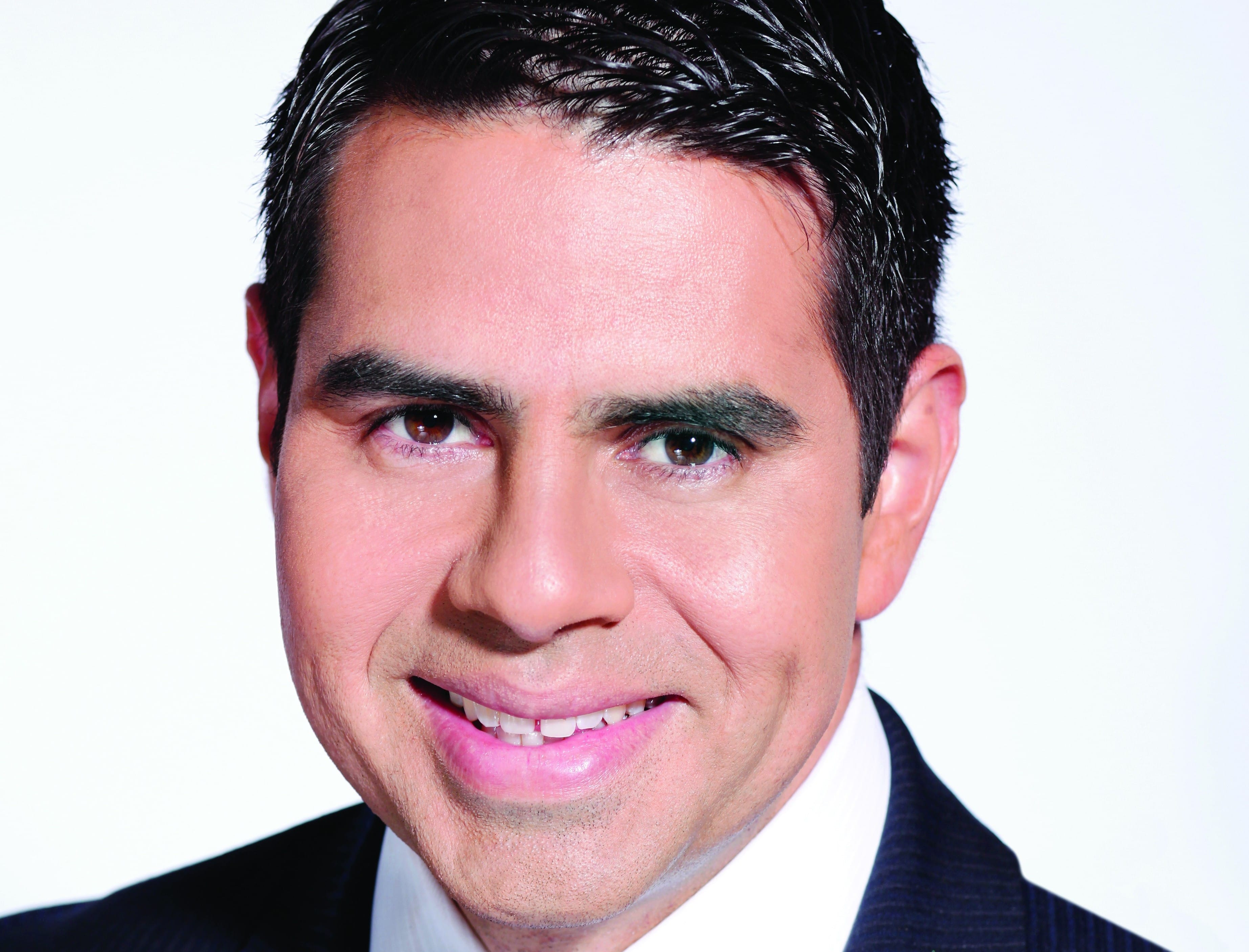Cesar Conde, WG’99, has turned heads with the speed with which he has ascended the ranks of Univision Communications Inc. Now president of Univision Networks, Conde, 38, also leads Univision Studios and oversees such corporate functions such as government relations, communications and community affairs. During our conversation with him, it quickly became apparent the passion that goes behind his work. As a leader at the top media company focused on the Hispanic community, he grasps how he and his employer are in a position to improve the lives of millions of individuals.
WHARTON MAGAZINE: What are your secrets for being so successful at a young age? Are you one of these people who doesn’t sleep?
CESAR CONDE: No. My philosophy has been pretty straightforward. I really believe that I tried to find an industry, I tried to find an organization, I tried to find a passion that I felt very strongly about early on, and, fortunately, I was able to do that. I think once you identify that clear passion and you put yourself in a situation or organization where you’re set up to succeed, as long as you apply yourself, I think we can all be extraordinarily successful. The only other philosophy that I’ve always tried to pursue is the no-job-too-big-no-job-too-small frame of mind. In other words, proactively try to raise your hand and do the tougher tasks or the unpopular tasks that people don’t necessarily gravitate towards, but if done the right way, you can actually have a tremendous amount of impact; and vice versa, have the humility that no matter what level you are in a career, there are smaller roles, there are smaller tasks that are important to do as well.
WM: You were one of 12 White House Fellows nominated by the president in 2002-3. Describe that experience.
CONDE: The White House Fellows program is one of the more spectacular leadership and learning experiences available out there for anyone from all walks of life.
WM: What were the takeaways?
CONDE: Two things probably jump out. One is I was fortunate that I got the advice to make sure that you’re always stretching yourself and investing in yourself at all points in your career. This was an unorthodox thing to do, to sort of take yourself out of the private-sector track for a year to do this [he left Univision to participate]. But this was a philosophy of investing in oneself and looking at one’s career over a longer-term horizon.
WM: How did this apply to that career?
CONDE: From a business perspective, understanding how the public and private sectors interact and how they can potentially work closer together is something that was an invaluable lesson. And of course, I’m a private-sector person and came right back, and I have applied those lessons and that knowledge every single day. I was particularly fortunate because I was assigned to be a special assistant to Secretary of State Colin Powell, and he had been a former White House Fellow. Dean Harker [former Wharton Dean Patrick T. Harker, CE’81, GCE’81, GR’83, HOM’87] was also a former White House Fellow. So that was also wonderful to have that affinity amongst the Wharton family.
WM: Speaking of Wharton, how have you applied your Wharton knowledge during your career?
CONDE: Yes. I think the first is the network of people that one gets to know and one builds. To this day, I still have some of my closest friends who come from my experience at business school. A lot of the people whom I have received great advice from throughout the years are people I have met through the Wharton network. Second, Wharton was the first place where I really began to understand how to work, to motivate people and peers, without having any sort of monetary incentives. I think the experience of finding common ground, finding common areas of interests, common passions, was invaluable.
WM: Is there anything in your early career that you wish you could do over?
CONDE: Early on in my career, I was an investment banker. I worked at Salomon Smith Barney in their M&A group, an incredible training ground and experience. Having said that, I was an indentured servant for two years and worked 100-plus hours. As you know, all the experiences in one’s career, you pick up the lessons from it and you only grow from them.
WM: Univision has had a big impact in the educational space. That’s also a personal passion, correct?
CONDE: My main passion outside of work is education. I have a small nonprofit that I run with my two younger brothers. I actually started it after I came out of Wharton. It’s a program called the Futuro Program. It works with inner-city, Hispanic, public-high-school students, helping them apply to college. Our program is a very humble program, but it’s consistent with a lot of the great work that goes on in our communities throughout the country. The challenge is how do you get that to scale, and that’s what all the organizations I think struggle with.

























